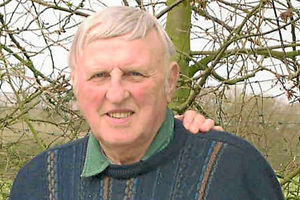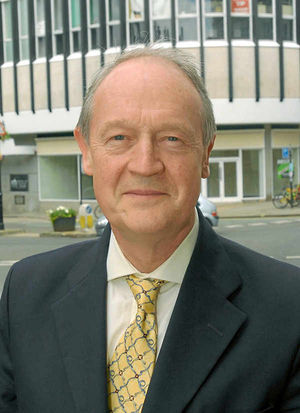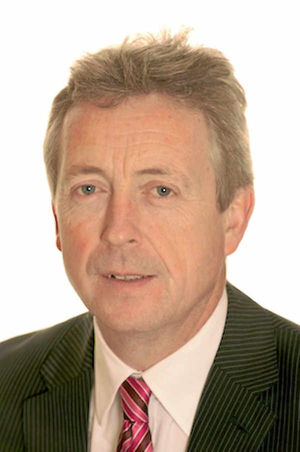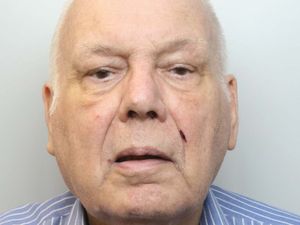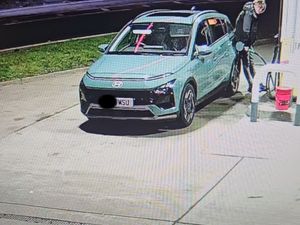Why vote for Police and Crime Commisioner is so vital
Shropshire will go to the polls on November 15 to vote for the region's first Police and Crime Commissioner.
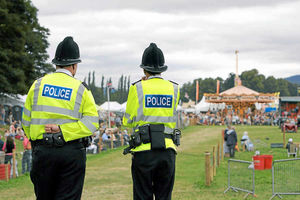
The appointee will hold local officers to account and work closely with the West Mercia Chief Constable David Shaw. He or she will be the voice of the public, the sole representative who will tell police to tackle crime and make our streets safer.
The elections in Shropshire will be part of a West Mercia-wide ballot and the PCC will represent Shropshire, Herefordshire and Worcestershire.
There will be elections for the 41 police force areas in England and Wales, outside London.
The Home Office is hopeful that people locally will vote and is launching a widespread campaign to get residents involved. A multimedia advertising campaign is featuring on TV and radio and advertisements will also appear in newspapers and at bus stops up and down the county.
A Home Office spokesperson said: "The arrival of Police and Crime Commissioners will mark the most significant democratic reform of policing in our lifetime. The public will finally have a seat at the table when key decisions are made about crime and policing in their area.
"The advertising campaign will ensure everyone knows that on November 15 they can have a say on one of the most important public services of all."
The press office at West Mercia Police's headquarters, Hindlip Hall, in Worcestershire, is maintaining a diplomatic 'no comment' stance on the elections. The force is keen not to in anyway influence the outcome because the elections have a political dimension.
Friday was the closing date for nominations, so we now know what the choice will be.
Three candidates have registered; Conservative hopeful Adrian Blackshaw, Labour's Simon Murphy and Independent Bill Longmore.
The PCC will have a very specific role. They will be elected to oversee how crime will be tackled in each police force area. Their aim will be to cut crime and to ensure your police force is effective. They will bring more of a public voice to policing by regularly engaging and meeting with the public to help set police and crime plans.
They will also ensure the police force budget is spent where it matters most; and appoint the Chief Constable. If necessary, they will be responsible for dismissing officers who have not performed well.
The PCC will not 'run' the police force. Chief Constables will continue to be responsible for the day-to-day operations of the police force, but they will be accountable to the public via PCCs.
One of the main aims of PCCs will be to reduce bureaucracy. Police forces are presently responsible to police authorities, complex organisations that have a number of sub-committees and panels. For instance, the West Mercia Police Authority has an executive board, which in turn has an editorial working group.
Beyond that, there are also a number of key panels, representing such issues as resources, strategic policing, equality and human rights, complaints and professional standards and partnerships.
Further down, there are divisional policing boards, which are responsible for local engagement, community safety initiatives, partnerships and childrens trusts, local policing performance and local authority scrutiny.
There are also a number of committees, tasked to take care of urgent decisions, appointments and remuneration, standards, audit and professional standards.
The present police authority comprises 17 members drawn from across the force area and is chaired by Sheila Blagg. It comprises nine councillors, who are nominated by the lead local authorities in West Mercia, and eight independents, who are directly appointed. At least one independent member must be a magistrate. Additionally, the police authority has two co-opted independent members who are appointed to the standards committee.
The structure has led to criticisms that the authority is bound up in too much red tape and can be slow to react. The Home Office hopes that the new structure will make it more responsive and flexible.
The new PCC will be able to reflect public opinion on policing issues and, in discussion with the Chief Constable, influence key policing issues and oversee complaints.
The Home Office spokesman added: "PCCs will ensure the policing needs of their communities are met as effectively as possible, bringing communities closer to the police, building confidence in the system and restoring trust.
"PCCs will make and influence key decisions that will impact on how your local area looks and feels - from CCTV, street lighting and graffiti to tackling gangs and drug-dealing.
"Their job is to listen to the public and then respond to their needs, bringing more of a public voice to policing and giving the public a name and a face to complain to if they aren't satisfied."
Prime Minister David Cameron is in favour of the new system. "This is a big job for a big local figure. It's a voice for the people, someone to lead the fight against crime, and someone to hold to account if they don't deliver.
"This isn't just for politicians, but community leaders and pioneers of all sorts. People with real experience who've done things and run organisations, whether they are charities or companies.
